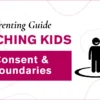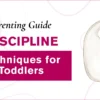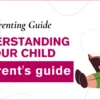We believe parenting shines brightest when you really get your kids—knowing them well enough to guide them toward a solid future. Too often, though, parents skip digging into any “parenting tips” or resources. They just roll with what their own folks did—or swing hard the other way. And what happens? You see families bouncing between yelling and overindulging, hardly ever landing on that sweet spot in the middle. Its time to dig in understanding your child and become an exemplary parents.
Nobody’s a perfect parent—I’ll be the first to admit that. No matter how much you prep, you’re going to stumble, figure things out as you go. But here’s the thing: if you take it seriously, a little effort in understanding your child can dodge those big missteps that stick around forever. I’ve picked up some lessons along the way, and they’ve made a difference—thought I’d pass them on to you.
Some folks turn to hitting or rough stuff—pinching, slapping, twisting arms—just to get their kids to listen. I don’t think that’s the way to go. It’s not about being soft; it’s that those moves show a gap in patience and “understanding your child.” You can’t nudge them toward good choices if you’re too busy scaring them into line.
On the flip side, parents who let everything slide—who spoil their kids silly—miss the mark too. They don’t have the backbone to set rules or keep a routine. A good parent finds that mix: loving yet steady, strict yet kind, warm but with limits. That’s what “effective parenting strategies” look like—holding the line without breaking the bond.
If you’re raising kids or even just pitching in, there are some plain truths about how they think, act, and feel that you’ve got to wrap your head around. It’s not rocket science—just the nuts and bolts of what makes them tick.
Kids are wired to be full of energy, nosy about everything, and ready to play at the drop of a hat. Schools try to squash that sometimes—thankfully, they don’t win. I can’t figure why anyone’d want to stamp it out anyway. That’s who kids are; it’s their superpower, really.
A boy’s zip can push him to do stuff we’d never manage; a girl’s questions can spark her own learning path; and all that goofing around? It helps them soak up the world on their terms. You’ve got to roll with these quirks—not expect them to sit still like grown-ups, all quiet and dull, slogging through chores with no fire. Truth is, they might teach us a thing or two about loving the ride.
Your house with kids? It’s going to be loud, messy, a little wild some days. But that’s not the whole story—it’ll also be packed with laughs, memories you’ll hold onto, and this happy glue between you and them that’s hard to beat.
Don’t fight what they bring—see it as a plus. Instead of bottling up that buzz, let it loose on sports; turn the silly stuff into art projects; let their “why’s” dig into new books or ideas. Kids like that outpace the ones stuck in stiff, boxed-in setups any day.
I’m always thrown when I run into a parent fuming because their kid doesn’t get something, stumbles over a new idea, or messes up a task. You’re their guide—chill out a bit. Mistakes are how they grow. They’re little; every big concept you toss their way is brand new. No way they’ll nail it first shot or ace every try—that’s nuts to expect. It’ll wear you out, strain things with them, maybe even make you want to quit. Flip it: figure they won’t get it at first, they’ll trip up plenty, need tons of explaining—then cheer when they catch on quick, mess up less than you thought, or leap ahead faster than you’d hoped.
Here’s a big one—confidence. Kids need it to thrive; without it, they just can’t stretch or grow right. We’ve seen how rough parenting or bad teachers tank that self-belief. You’re the grown-up here, so dodge the traps that crush it: no shouting, no mean names, no smacking, no sneaky jabs, no doing it all for them, no crazy high bars, and definitely don’t hold back on saying you trust they’ve got this.
Skip those pitfalls, and your kid’ll tackle stuff with guts and pick things up quicker. Want to push it further? Tell them their effort’s worth something—even when it’s off—share how you’ve flubbed learning too, let them hear you believe in them, and keep saying mistakes are normal, part of the deal. That’s “child development guide” gold right there.
Your kid’s got to have rules, but room inside them to be who they are. She’ll need you to cut her slack when she’s learning, flubbing, figuring stuff out, or zoning off—but you’ve got to hold firm too, with time caps, nudges to focus, rewards when she nails it, and fair fallout when she doesn’t.
You’ve got to nail that balance with clear lines and what happens if they’re crossed—like, “No work done by supper, no video games tonight.” Lay it out smart: tell them why it’s there, make sure they know you’re still in their corner, keep the love loud.
One way to really dive into understanding your child is homeschooling. It’s not for everyone, but it’s a chance to tailor their days to who they are—letting that energy, curiosity, and playfulness shape how they learn. You’re not just a parent then; you’re their teacher, their cheerleader, right there through every step. It’s a big shift, takes grit, but the payoff’s in how tight you get, how much you both grow.
Take it easy—that’s my last nudge. Don’t let the sour stuff mess with your head. Who cares what folks think, if their grades sparkle, or where they stack up against other kids? That’s noise in the long haul. What counts is they’re growing, picking up new bits, turning into better versions of themselves, and loving it all. Parenting can be a blast for you both—depends on how you play it, what you make of it. Get “understanding your child” down, and you’re in for a stack of good times. Check out more “parenting tips” on our site if you’re itching for extra pointers—I’m just a click away, probably untangling my own day!







